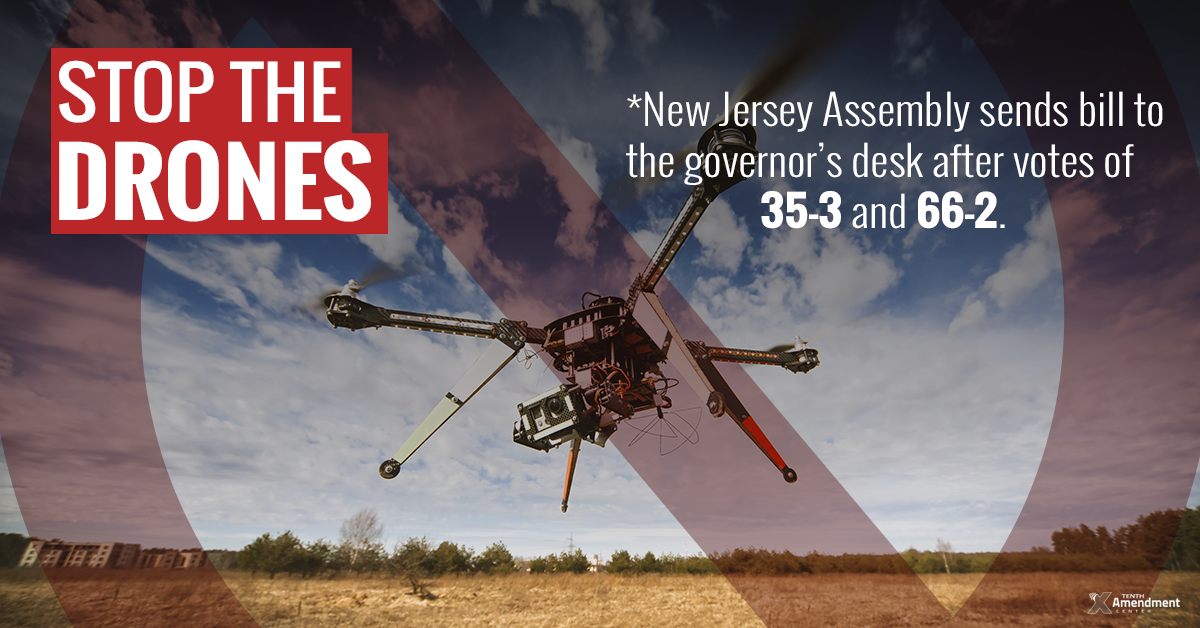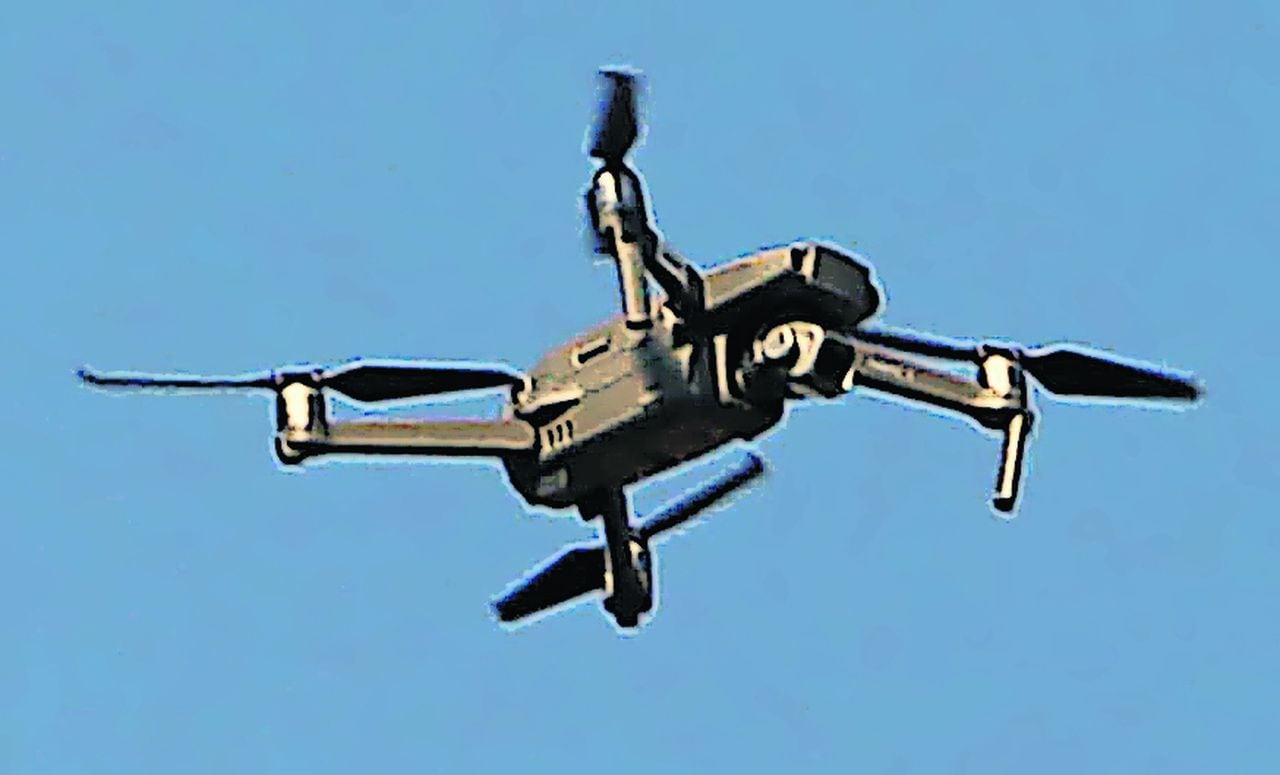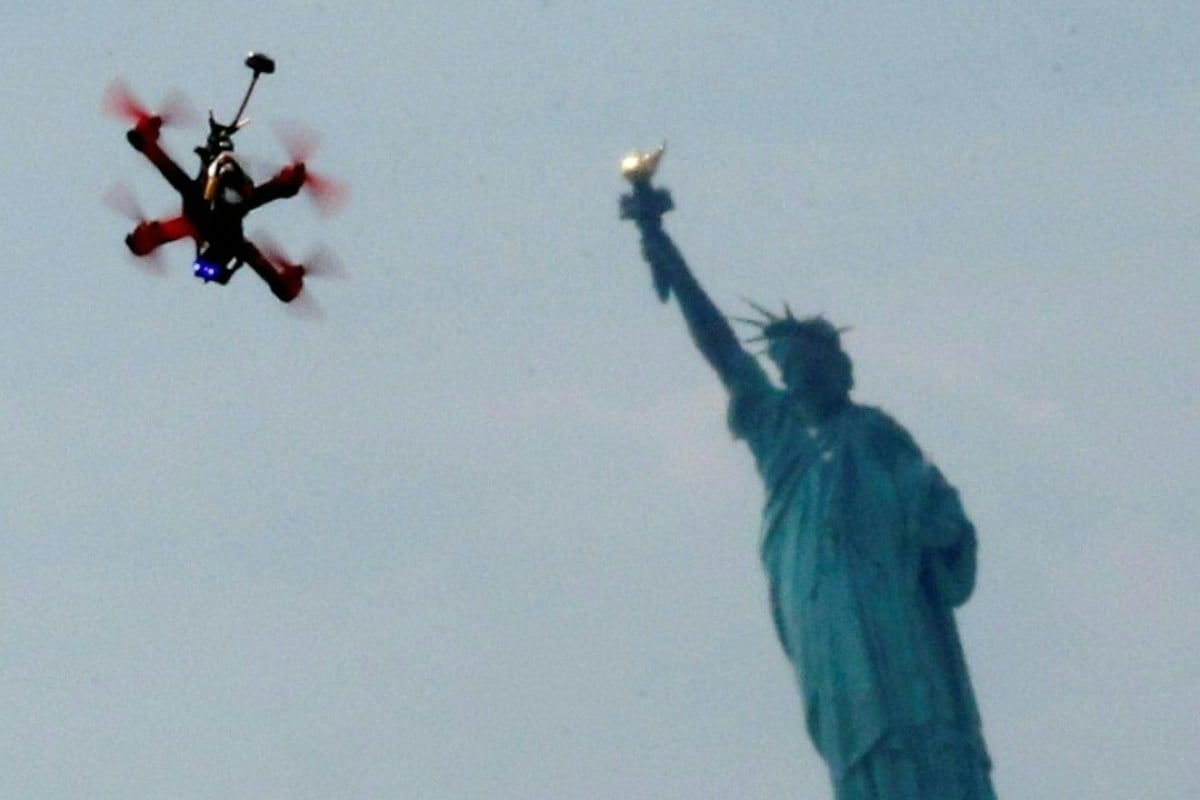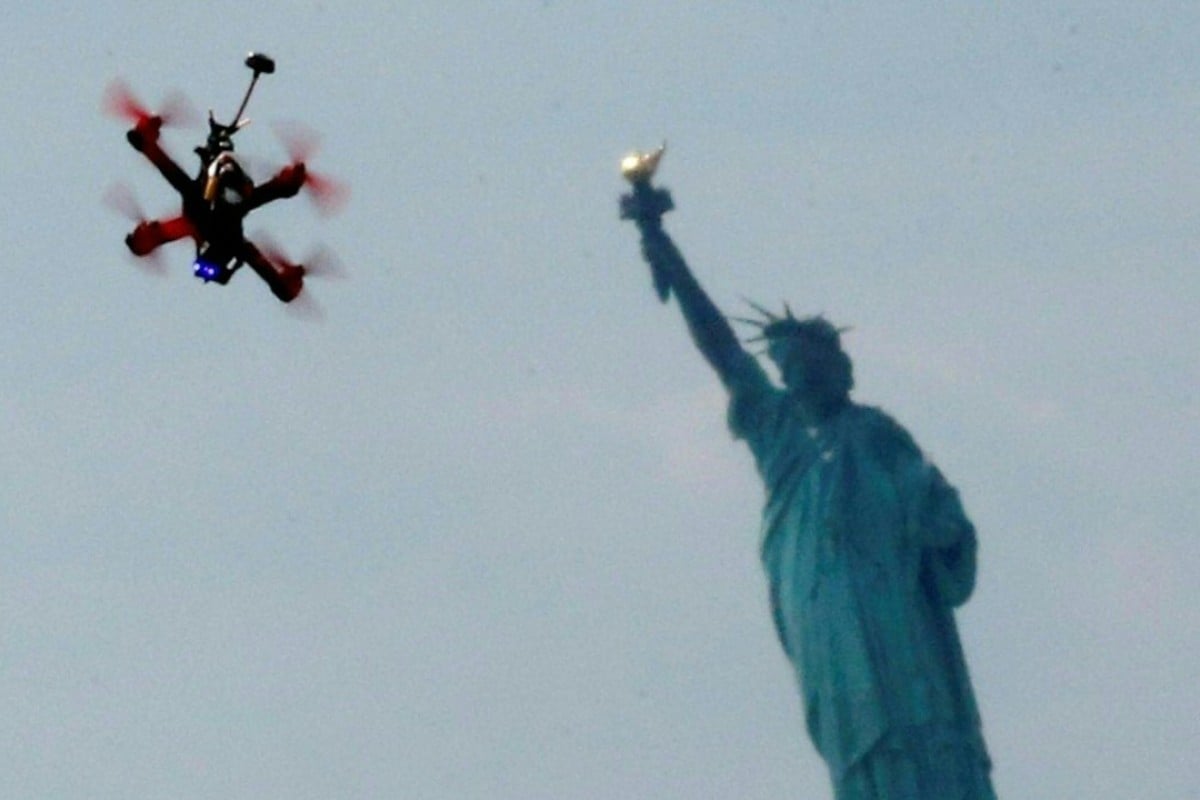Drones Over New Jersey Solved: This investigation delves into the recent surge of drone-related incidents across the Garden State, examining the legal, technological, and societal implications. We explore the diverse responses from law enforcement, analyze emerging technologies designed to counter unauthorized drone activity, and assess the broader economic and security ramifications of this rapidly evolving technology.
From analyzing specific incidents involving various drone models to exploring the nuances of New Jersey’s drone laws and comparing them to neighboring states, this exploration aims to provide a comprehensive understanding of the challenges and opportunities presented by drones within New Jersey’s airspace. We’ll also consider the potential for AI-powered solutions and discuss strategies to enhance public safety and security while acknowledging the economic benefits drones offer across various sectors.
Recent Drone Incidents and Their Impact on New Jersey: Drones Over New Jersey Solved

The increasing prevalence of drones in New Jersey has led to a rise in incidents requiring law enforcement and regulatory attention. This section details several significant events, analyzes law enforcement responses, and explores the legal framework governing drone operations within the state.
Significant Drone Incidents in New Jersey
While precise data on all drone incidents is not publicly available due to privacy and ongoing investigations, three notable events illustrate the challenges posed by unregulated drone use. These incidents highlight the need for robust regulatory frameworks and advanced detection technologies.
- Incident 1: On March 15, 2023, a drone was reported flying near Newark Liberty International Airport, causing a temporary disruption to flight operations. The drone, believed to be a DJI Mavic 2 Pro (known for its high-resolution camera and obstacle avoidance features), was ultimately recovered, but the operator remains unidentified. Law enforcement responded swiftly, coordinating with airport security and the FAA.
- Incident 2: In July 2023, a drone equipped with a thermal imaging camera was discovered near a sensitive government facility in Trenton. The make and model of the drone are unknown, but its advanced capabilities raised concerns about potential surveillance or security breaches. The response involved a multi-agency investigation, including state police and federal agencies. The investigation is ongoing.
- Incident 3: A smaller, hobbyist-grade drone (likely a Syma X5C, known for its affordability and ease of use) crashed into a residential area in Hoboken in October 2023, causing minor property damage. While the incident did not involve malicious intent, it highlighted the potential for accidents and the need for responsible drone operation. Local police responded and handled the situation efficiently, with minimal disruption.
Law enforcement responses varied depending on the nature and severity of each incident. Incidents involving potential security threats or interference with critical infrastructure prompted more extensive investigations and inter-agency cooperation. Less serious incidents were handled primarily by local police departments.
Legal and Regulatory Aspects of Drone Operation in New Jersey
New Jersey, like other states, has implemented laws and regulations to govern the operation of drones. Understanding these regulations is crucial for both recreational and commercial drone users to ensure safe and legal operation.
New Jersey’s drone laws largely align with Federal Aviation Administration (FAA) regulations, requiring registration for certain drones, restricting flights near airports and sensitive areas, and mandating responsible operation. Neighboring states like New York and Pennsylvania have similar regulations, although specific restrictions on airspace and licensing might vary slightly. For example, New York might have stricter rules regarding commercial drone operations within its airspace, requiring more extensive permits compared to New Jersey.
A key difference is the level of enforcement; some states have dedicated drone enforcement units while others rely on existing law enforcement agencies.
Hypothetical Scenario: Imagine a drone delivering packages crashes into a power line, causing a power outage. Existing laws would likely hold the drone operator liable for property damage and any resulting disruptions, potentially leading to fines and legal action depending on the circumstances. Insurance coverage for drone operations would also be a significant factor in determining liability.
Technological Solutions for Drone Monitoring and Control, Drones over new jersey solved

Several technologies are being employed to detect and counter unauthorized drone activity. These solutions vary in effectiveness, cost, and range of capabilities.
- Drone Detection Systems: These systems use radar, radio frequency (RF) sensors, and optical cameras to detect drones within a certain range. Effectiveness depends on factors like drone size, altitude, and environmental conditions.
- Drone Jammers: These devices disrupt the communication signals between a drone and its operator, forcing the drone to land or return to its home point. However, they can also interfere with other electronic devices and may be subject to legal restrictions.
- Anti-Drone Guns: These specialized weapons use directed energy to disable drones without causing significant physical damage. They are highly effective but can be expensive and require specialized training to operate safely and effectively.
AI and machine learning are increasingly used to enhance drone detection and response systems. They can analyze sensor data, identify patterns of unauthorized drone activity, and predict potential threats. This enhances the speed and accuracy of detection and allows for a more proactive response.
The recent spate of unauthorized drone activity over New Jersey appears to be resolved, though investigations are ongoing. One incident, detailed in a news report about an nj drone shot down , highlights the security concerns these incursions present. Authorities are working to prevent future occurrences and ensure the airspace remains safe and secure for all.
| AI-Powered Solution | Pros | Cons | Cost Estimate |
|---|---|---|---|
| AI-Enhanced Radar System | High accuracy, long range, can track multiple drones simultaneously | High initial investment, requires specialized expertise to operate and maintain | $100,000 – $500,000+ |
| AI-Based Drone Identification Software | Relatively low cost, can identify drone models and operators | Limited range, susceptible to interference, accuracy depends on data quality | $10,000 – $50,000 |
| AI-Driven Drone Countermeasure System | Automated response, can neutralize threats quickly and efficiently | Potential for unintended consequences, ethical concerns regarding autonomous weapon systems | $50,000 – $200,000+ |
Public Safety and Security Implications of Drones in New Jersey

The increasing use of drones presents both opportunities and challenges for public safety and security in New Jersey. Addressing these concerns requires a multi-faceted approach combining technological solutions, regulatory frameworks, and public awareness campaigns.
Potential risks include unauthorized surveillance, smuggling of contraband, and even potential attacks on critical infrastructure. Current security measures may be vulnerable due to the relatively low cost and accessibility of drones. Many current security systems are not designed to detect and counter the threat of small, commercially available drones.
- Strengthen drone detection and countermeasure capabilities at critical infrastructure sites (airports, power plants, government facilities).
- Implement stricter regulations and enforcement mechanisms for drone operation near sensitive areas.
- Develop public awareness campaigns to educate citizens about responsible drone operation and potential security risks.
- Invest in research and development of advanced drone detection and countermeasure technologies.
- Foster collaboration between law enforcement agencies, private sector companies, and academic institutions to address the challenges posed by drones.
Economic Impact of Drones in New Jersey
Drones offer significant economic potential in various sectors across New Jersey, while also presenting some challenges. Careful consideration of both benefits and drawbacks is essential for responsible integration.
In agriculture, drones can be used for crop monitoring, precision spraying, and livestock management, improving efficiency and reducing costs. In infrastructure inspection, drones can provide safer and more cost-effective ways to inspect bridges, power lines, and other critical infrastructure. Delivery services are also exploring the use of drones to improve speed and efficiency.
The recent drone activity over New Jersey has thankfully been resolved, thanks to swift action by authorities. For a completely different perspective on aerial surveillance, check out the port dover live camera , offering a real-time view of a different location. Understanding various surveillance methods helps us appreciate the complexities involved in managing airspace and ensuring safety, as demonstrated by the successful resolution of the New Jersey drone situation.
Potential drawbacks include job displacement in certain sectors and the need for significant investment in infrastructure and training. Regulatory uncertainty and safety concerns can also hinder the widespread adoption of drones.
Economic Advantages and Disadvantages in Agriculture: A bar chart could visually represent the economic advantages (increased yields, reduced labor costs, improved crop monitoring) versus disadvantages (initial investment in drones and software, potential for accidents, need for skilled operators) in New Jersey’s agricultural sector. The chart would clearly show that while there’s a substantial initial investment, the long-term economic benefits, such as increased efficiency and reduced losses, are likely to outweigh the costs.
The increasing prevalence of drones in New Jersey presents both significant challenges and considerable opportunities. While concerns regarding public safety and security are valid and necessitate robust technological solutions and proactive legal frameworks, the economic potential of drones across diverse industries cannot be ignored. A balanced approach, combining technological advancements, effective regulations, and proactive public awareness, is crucial to harnessing the benefits of drones while mitigating potential risks.
Only through a comprehensive understanding of these complexities can we ensure the safe and responsible integration of drones into New Jersey’s airspace.
FAQ Overview
What are the penalties for illegal drone operation in New Jersey?
Penalties vary depending on the violation but can include fines, license suspension, and even criminal charges.
Can I fly a drone over private property in New Jersey without permission?
Generally, no. You need the property owner’s explicit permission to fly a drone over private land.
Are there specific no-fly zones for drones in New Jersey?
Yes, areas near airports, critical infrastructure, and sensitive locations are typically designated as no-fly zones.
What resources are available for reporting unauthorized drone activity?
Contact your local law enforcement agency or the Federal Aviation Administration (FAA).
